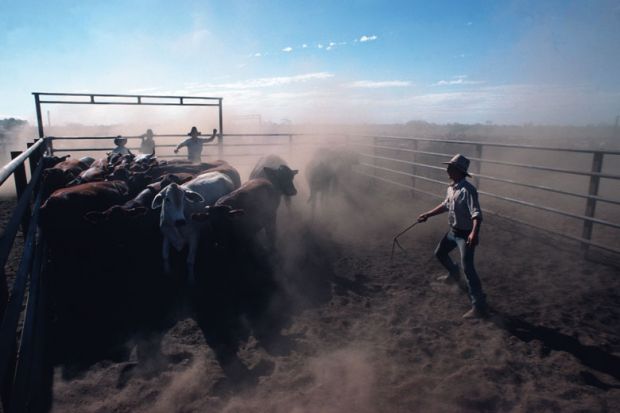The creation of an extra 20,000 university places could drive rich metropolitan universities into the feeding grounds of their country cousins, Australia’s biggest regional institution has warned.
Charles Sturt University (CSU) vice-chancellor Renée Leon said Canberra’s decision to allocate the new places to socially disadvantaged students, just as domestic enrolments wane amid an employment boom, could inadvertently weaken regional institutions.
Professor Leon said that rather than allow “unrestrained competition” for the 20,000 places, the government should preferentially allocate them to regional universities with strong “equity” track records. This would help to keep more graduates in regional Australia, where skills shortages are most acute.
Professor Leon said she was not pressing for a regional monopoly on the extra places, but rather “an appropriate consideration of all the factors that the government ought to take into account”.
“It can’t only be looked at through the lens of higher education policy,” she said. “It also has to be looked at through the lens of regional development policy. [Of the] people who study at Charles Sturt, 75 per cent are still working in a regional area after graduation. Regional universities are critical anchor institutions for the success of regional communities.”
The government says the new places must go to socio-economically disadvantaged, regional, Indigenous, disabled or first-in-family students undertaking courses in fields with skills shortages. Universities have until 19 September to tender for the places.
Professor Leon said that during the pandemic, metropolitan universities had compensated for declining international enrolments by vigorously recruiting domestic students in high-fee fields such as business, commerce, law and social studies, eroding CSU’s market share of those subjects.
Now, a similar pattern loomed with the extra 20,000 places, which must commence in 2023 and 2024 – ahead of a demographic spike expected around 2025.
“Over time, there will be increasing demand across the board that would enable 20,000 places to be absorbed across the sector without adversely impacting anyone, but I don’t think we’re there yet,” Professor Leon said, warning that metropolitan universities’ “hunting” would result in students being “siphoned out of the regions and into the cities”.
CSU’s modelling suggested that the university could lose the equivalent of 2,000 full-time students to institutions with more resources and status. “That starts to significantly impact the viability of your courses, and then regional universities end up with another round of course-cutting.”
Professor Leon said many regional families could not afford to send their children to study in the cities. “If regional universities end up having fewer courses or not being viable, it impacts on the opportunities that country kids have to go to university. That locks in a vicious cycle of less skills in the regions, and families then don’t want to live in the regions because there’s less opportunity for their kids.”
Several city institutions have marked their equity credentials by setting ambitious targets for underprivileged enrolments. Professor Leon said this was laudable, “but let’s not forget that the regional universities have been doing that all along”.
The most recent Education Department statistics show that the 10 public universities based outside the capital cities have 41 per cent of regional enrolments, 38 per cent of Indigenous enrolments and 28 per cent of socio-economically disadvantaged enrolments despite housing just 18 per cent of domestic students.
Register to continue
Why register?
- Registration is free and only takes a moment
- Once registered, you can read 3 articles a month
- Sign up for our newsletter
Subscribe
Or subscribe for unlimited access to:
- Unlimited access to news, views, insights & reviews
- Digital editions
- Digital access to THE’s university and college rankings analysis
Already registered or a current subscriber? Login








